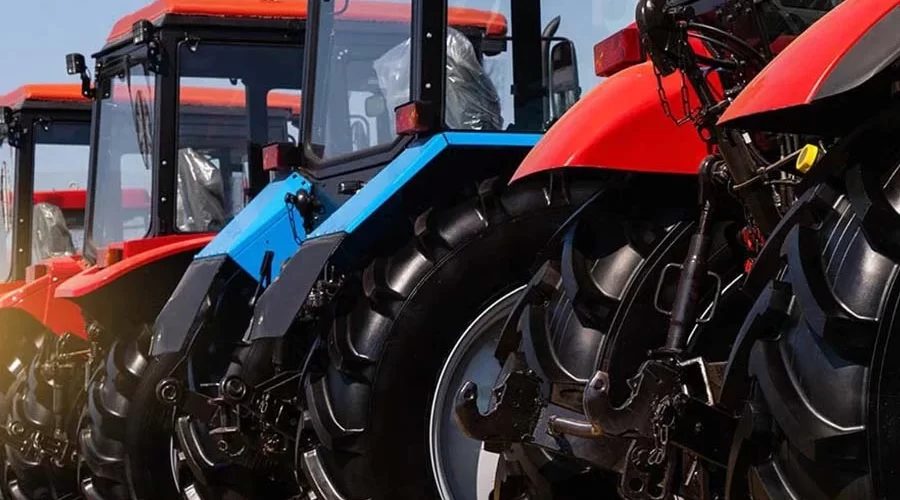
The agricultural sector in Nigeria is pivotal to the nation’s economy, and tractors are essential tools for maximizing productivity and efficiency on the farm. However, tractor prices in Nigeria are subject to a variety of influencing factors that prospective buyers need to consider. This article delves into these factors, providing an overview of the market for tractors for sale in Nigeria, including popular brands such as Massey Ferguson, and offering purchasing advice for Nigerian farmers.
Availability and Popular Brands
In Nigeria, the availability of tractors for sale can vary significantly based on several factors, including geographic location and importation routes. Major urban centers and dedicated agricultural regions typically have a wider selection of tractors available for purchase. Among the popular brands, Massey Ferguson stands out due to its reputation for reliability and performance. This brand, along with others like New Holland and Massive Tractors, is favored by Nigerian farmers for its durability in tough farming conditions.
New VS Used Tractor Prices in Nigeria
When considering tractor purchases, Nigerian farmers often face the choice between new and used models. New tractors, while offering the latest technology and warranties, come with a higher price tag. Used tractors, on the other hand, can be significantly cheaper, but their condition and remaining lifespan can be variable.
For those with limited budgets, purchasing a used tractor might be more appealing, especially if it comes from a reputable dealer who provides maintenance records and inspections. However, the long-term costs of maintaining an older machine can sometimes offset the initial savings. Thus, it’s crucial for buyers to assess the total cost of ownership over time.
Impact of Import Duties and Local Manufacturing
Another significant factor affecting tractor prices in Nigeria is import duties. Tractors imported from abroad are subject to import tariffs, which can raise their final selling price. These duties are intended to protect local manufacturers and stimulate domestic production. However, in reality, they can limit the affordability of high-quality imported tractors for Nigerian farmers.
Local manufacturing of tractors is gradually improving, with several initiatives aimed at producing affordable, locally assembled machines. This shift towards local manufacturing can potentially reduce costs, making tractors more accessible to smallholder farmers. However, the transition is still in progress, and imported models remain prevalent in the market.
The Role of Tractor Trailers
Tractor trailers are another vital component in farming operations, often necessary for transporting goods and equipment. The cost of a tractor trailer can add to the overall expenses of owning a tractor, but their utility in increasing operational efficiency often justifies the investment. Farmers need to consider whether their operations would benefit from the addition of a trailer when budgeting for tractor purchases.
Economic Factors and Pricing Trends
Economic factors, including inflation and currency exchange rates, also play a significant role in determining tractor prices in Nigeria. Fluctuations in the Naira can affect purchasing power, especially for imported tractors. Additionally, the broader economic environment, including government policy and agricultural subsidies, can influence pricing trends.
For instance, government initiatives aimed at boosting agricultural productivity can sometimes result in subsidies for farming equipment, effectively lowering prices for farmers. Staying informed about such programs can be beneficial for prospective buyers.
Advice for Nigerian Farmers
For Nigerian farmers considering the purchase of a tractor, several strategies can help ensure a sound investment. First, assess the specific needs of your farming operations to determine the right tractor type and size. Consider both current and future needs to make a purchase that will remain valuable over time.
Researching dealers thoroughly is also crucial. Opt for reputable dealers who offer comprehensive after-sales service and support. This can make a significant difference in maintenance and overall satisfaction with the purchase.
Additionally, exploring financing options can help manage the upfront costs of purchasing a new or used tractor. Many tractor dealers offer payment plans or work with financial institutions to provide loans tailored to farmers.
Understanding the factors influencing tractor prices in Nigeria and evaluating personal and operational needs can guide farmers toward making informed purchasing decisions. By considering both economic and practical aspects, Nigerian farmers can enhance their productivity and contribute positively to the agricultural sector.



Post a Comment